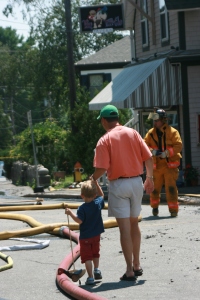I just came back from having a few drinks with a close friend. We didn’t know each other five years ago – we met when our oldest children were in kindergarten together – and have managed to build a strong friendship since then. It always amazes me how difficult it is to form close friendships after college. There is something magical about the intense, shared experience of college coupled with the fact that that is the time when we are finally coming into our own as people (I hesitate to use the term “adults” since I didn’t display a whole lot of adult behavior between the ages of 18 and 22).
Anyway, we were talking about our families and our relationships with our wives and we stumbled upon this startling conclusion: Every man we know is grappling, struggling with the same fundamental question in his personal life: Is my marriage solid? There are two facts of life conspiring to make the lives of American men aged 30-50 more challenging right now. Forgive me the gross over-simplification, but I think it’s necessary to make my point.
First, as we age, most of us slow down; we have a decreasing amount of energy at our command. There may well be exceptions, but I haven’t met them.
Second, as we move from newly-weds to empty-nesters, the demands on that diminishing energy pool change dramatically.
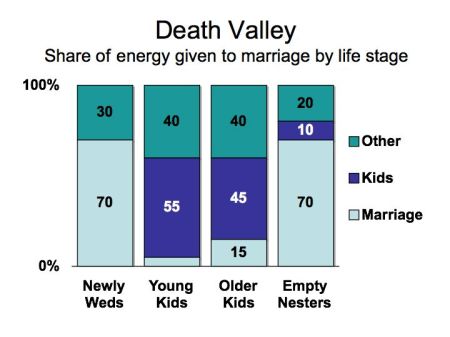 Early in marriage, our robust energy is focused on the marriage and budding careers. As we move into our late thirties and forties, careers get more time-consuming and kids hit the stage. Not a lot of time to focus on our wives or even ourselves. This is the stage when most of us fall out of shape and out of love. Love in the romantic sense; our marital relationships are more important than ever, but for many of us our passion for our kids is more evident than our passion for our wives. As the kids mature and gain independence – and here I’m conjecturing since I am not there yet – the kids consume less energy which means we can begin to focus on our wives again.
Early in marriage, our robust energy is focused on the marriage and budding careers. As we move into our late thirties and forties, careers get more time-consuming and kids hit the stage. Not a lot of time to focus on our wives or even ourselves. This is the stage when most of us fall out of shape and out of love. Love in the romantic sense; our marital relationships are more important than ever, but for many of us our passion for our kids is more evident than our passion for our wives. As the kids mature and gain independence – and here I’m conjecturing since I am not there yet – the kids consume less energy which means we can begin to focus on our wives again.
I saw my own parents go through this evolution. There was a time when 110% of their time was consumed by kids and work, but now that they are semi-retired grandparents, their marriage seems to have regained a richness and levity that didn’t exist when I was living at home.
Why am I bothering to write this? Because I think this is a universal issue associated with all young families. It is easy to give up hope, to forget why you married your wife in the first place; to figure that your marriage will go downhill as time passes. But that’s doesn’t have to be the case. In fact, there are things you can do today to rekindle your optimism and commitment to your marriage.
- Don’t give up the faith. Recognize that the doldrums you may perceive have more to do with your stage of life than your connection with your wife. At some point you and your wife will both have more time to devote to your relationship. I can’t say when, but I know that kids become more independent over time which restores energy to your marital relationship.
- Re-prioritize your relationship. If you can see a light at the end of the tunnel – a rich, bright light – it is easier to commit more attention to it. Dare to believe that you will turn a corner at some point, and you will find yourself putting more thought into maintaining a good marriage.
- Look for the easy wins. Most of us overlook chances to score huge points by doing the little things. Take out the garbage without being asked, buy some flowers on the way home from work on a Friday, surprise her with a babysitter and a night out… These things don’t take a lot of time or energy, but they help our wives see that we are committed to our relationships. And that, in turn, will inspire them to respond.
I’m no marriage counselor, but I’ve talked to enough friends to believe what I’m telling you. I think women discuss the state of their marital relationships with their friends all the time; men never do. And because we don’t, we have no support system to bolster us when we tire. Wouldn’t it be nice if we men dared to talk about the universal challenges we face as fathers and husbands? We’d all feel a lot better.



 Posted by John Boynton
Posted by John Boynton 
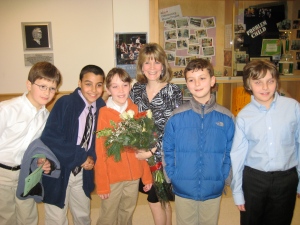

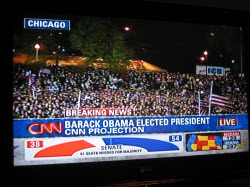
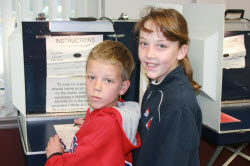

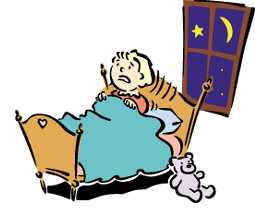


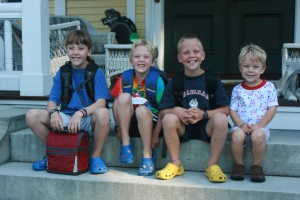

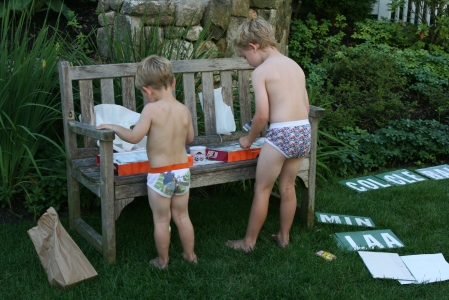
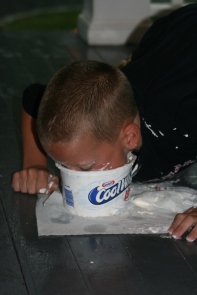
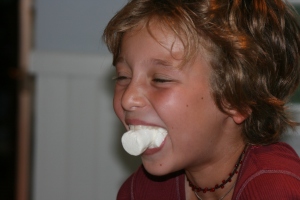
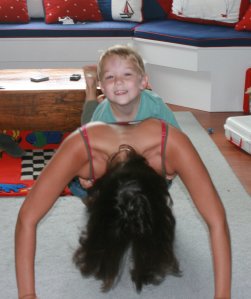
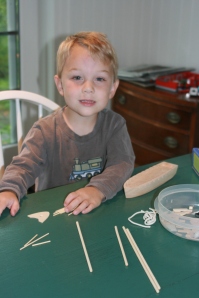
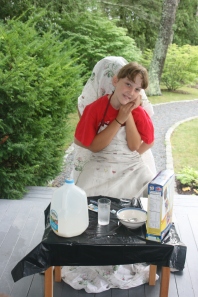
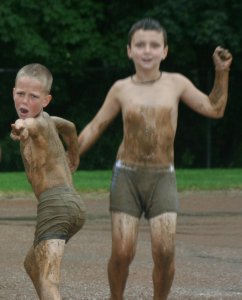
 My family had one of those experiences last night that will surely stay with us for a very long time. Our summer vacations to Northeast Harbor, Maine are always jam-packed with family and friends who converge on the same town every summer for a lot of good times. Last night’s experience was new and different.
My family had one of those experiences last night that will surely stay with us for a very long time. Our summer vacations to Northeast Harbor, Maine are always jam-packed with family and friends who converge on the same town every summer for a lot of good times. Last night’s experience was new and different.